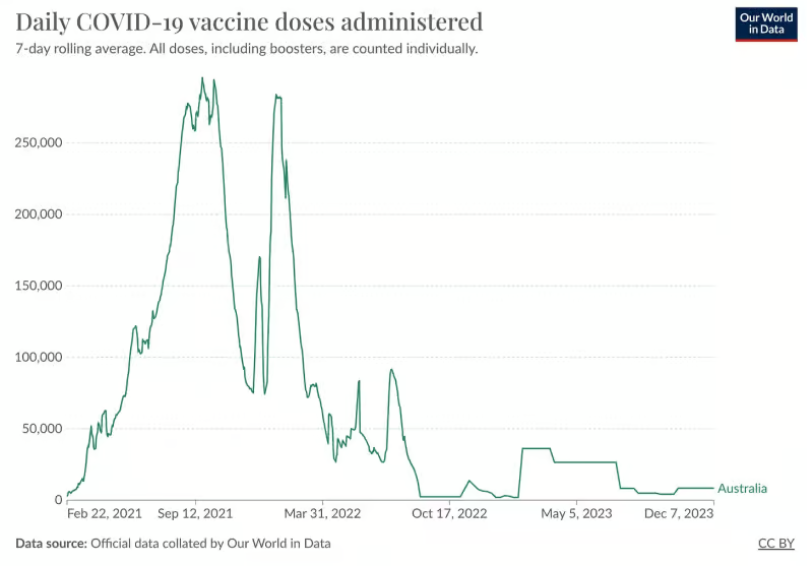OPINION
Rebekah Barnett
Rebekah Barnett reports from Western Australia. She is a volunteer interviewer for Jab Injuries Australia and holds a BA in Communications from the University of Western Australia. Find her work on her Substack page, Dystopian Down Under.
After climbing the world leaderboard during the initial Covid vaccine rollout to achieve over 95 per cent vaccination coverage, Australians have turned their back on boosters, with the vast majority now ‘under-vaccinated.’
Just 1.7 million, or 8.5 per cent of Australia’s 20.1 million adults have had a Covid booster in the past six months, according to the latest Australian Government update (as at 7 February). In contrast, 18.1 million, or 90 per cent had at least one vaccination previously, but have not kept up-to-date.
An estimated 302,000 (1.5%) of Australian adults remain unvaccinated, although this number may be closer to half a million according to data aggregator site Covidlive.com.au.
Aside from a barely perceptible flurry of boosting in November and December of 2023 (likely related to a hysterical media blitz about an eighth Covid wave), Australians are no longer bothering with boosters, which at this stage are predominantly the Pfizer and Moderna mRNAs.
Predictably, the majority of up-to-date Australians are aged 75 and over, although, even then, two thirds (66.4%) are under-vaccinated. Eighty per cent of adults in the 64 to 75 years age bracket, and 96.7 per cent of adults in the 18 to 64 age bracket are under-vaccinated.
This means most Australians have ignored even the relatively conservative guidance of the Australian Technical Advisory Group on Immunisation (ATAGI), which recommends Covid boosters only those aged 65 and over and adults who fall into special risk categories.
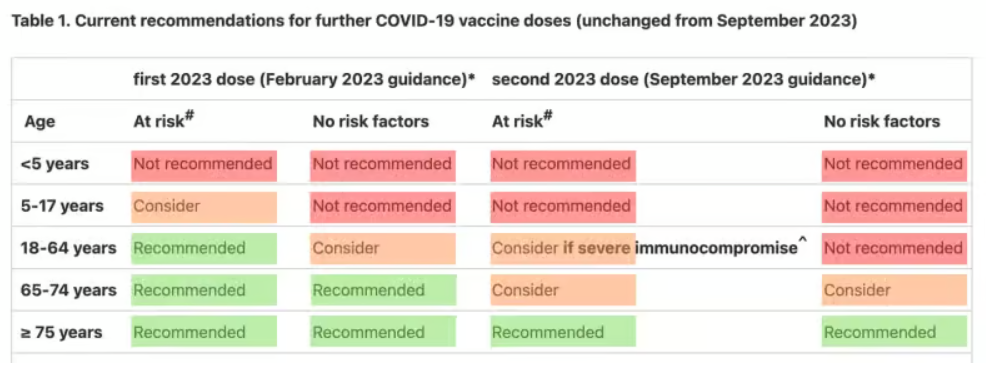
They’ve also largely ignored repeated warnings in the media from high-profile experts about the dangers of Covid, and calls to get boosted for reasons as trivial as ‘feeling at risk’ because of their job or lifestyle.
Notably, ATAGI does not recommend boosters for such reasons, especially in the case of adolescents and young adults, which it advises “have a lower age-related risk of severe Covid-19, and a comparatively higher risk of myocarditis following vaccination.”
Experts blame social media, vaccine fatigue, poor public health messaging and rampant misinformation for Australians’ disinterest in continuing to vaccinate. All of these may be contributing factors, but there’s another glaringly obvious explanation.
The products were a failure from the very beginning.
Recall that Pfizer’s vaccine, which accounts for over 70 per cent of all vaccine doses administered in Australia and billions worldwide, was provisionally approved for the sole purpose of, “Active immunisation to prevent coronavirus disease 2019 (Covid-19) caused by SARS-CoV-2” (emphasis added).
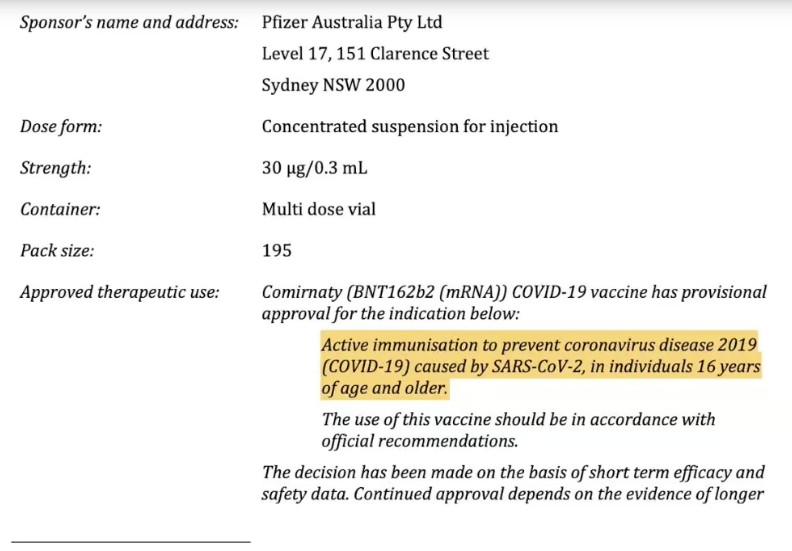
This is clearly stated in the Therapeutic Goods Administration’s (TGA) Public Assessment Report for the Pfizer vaccine, first issued in January 2021, and in comparative regulatory approval documentation around the world.
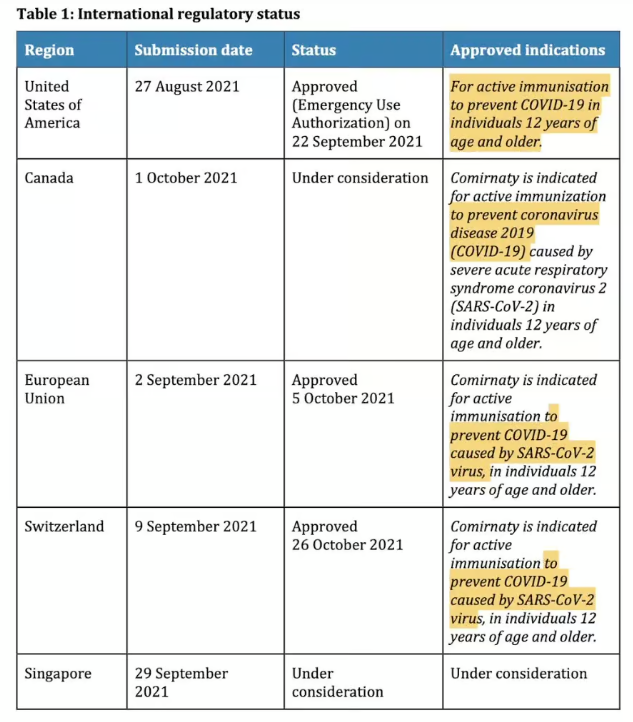
This is also the case for Moderna’s Covid vaccine, which was approved to “prevent coronavirus disease,” as stated in the corresponding Public Assessment Report, August 2021.
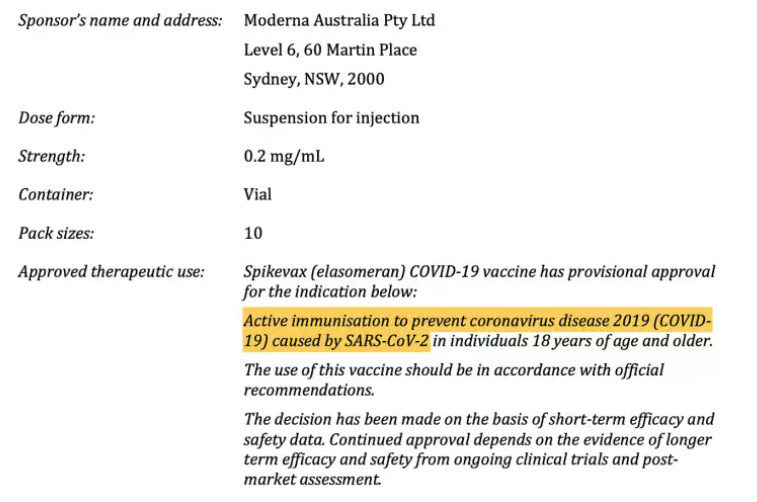
Australians knew the deal. Civil liberties were confiscated until we earned them back by vaccinating our way to freedom and gainful employment. The Federal Government allocated taxpayer funds to a ‘Spread Freedom’ campaign to assist state and territory governments in achieving their vaccination targets.

Of course, Australians considering vaccination against job loss and house arrest probably hadn’t read the TGA’s Public Assessment Report for the Pfizer vaccine, which specified that “vaccine efficacy against asymptomatic infection and viral transmission” had “not yet been addressed” (emphasis added).
Republished from the author’s Substack.


